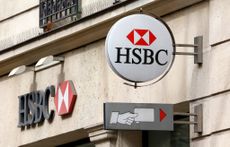What is Islamic finance? We explain what it is and why to consider an Islamic bank for a savings account
Islamic finance, known as Shariah-compliant, follows the principles of Islam which makes them somewhat different to high street banks. Several savings products have recently been topping our savings rates tables too, making them an interesting option


If you’re keeping an eye on the rates being paid by the best savings accounts, now could be a good time to consider an Islamic bank. We explain how they work.
Islamic finance follows the principles of Islam and the teachings of the Koran, but it’s available to anyone regardless of religion.
Islamic banking, also called Sharia banking, has become increasingly popular as some of the core principles include not benefitting from practices like gambling and sharing profit and risk between banks and customers. In this respect there’s common ground with ethical finance.
There’s one big difference in Islamic banking for savers: you can’t earn interest from cash deposits in the traditional banking way. Instead, the money you earn on savings is from the profit the bank makes by investing your money in certain projects and is known as the ‘expected profit rate’ (EPR).
In 2022 Islamic banks like Al Rayan, Habib Bank AG Zurich, Gatehouse and the Bank of London and the Middle East have regularly topped our savings rates tables ahead of the paltry interest rates offered by high street banks.
We explain what you need to know about Islamic finance.
Islamic finance versus conventional finance
Islamic finance, also called Sharia banking, is banking that adheres to Islamic law. Some of the core principles include the following:
Look After My Bills Newsletter
Get the best money-saving tips, tricks and deals sent straight to your inbox every week. Make sense of your money in partnership with The Money Edit.
- Not charging interest to borrow money, including mortgage borrowing
- Not paying interest on savings or current accounts
- Not benefitting from investing in businesses involving armaments, gambling, pornography, drugs, tobacco, pork or alcohol
- Not entering into high-risk investments
- Sharing profit and risk between banks and consumers
This is different from conventional banks where there are no such restrictions. Conventional banks also treat money as a commodity and lend it to their customers in return for interest as a means of compensation.
Islamic banks are not money-lending organisations but operate as a trading or investment house with money being invested in a way that all parties share the risk and profit.
Islamic finance products are usually asset-backed and involve trading of assets and renting of assets. Popular investments include financing property and construction schemes.
What is an expected profit rate and how does it differ from interest?
The key difference if you choose a Sharia bank for your savings is the way the return on your cash deposit will be presented.
Under Islamic law money itself has no intrinsic value - it is simply a medium of exchange. This means earning interest is not allowed.
Instead, money is invested, in return for an 'expected profit rate'. Essentially, you enter into a joint investment venture or profit share type of arrangement with the bank.
In practice you hand over your savings to the bank to invest with the expectation of getting back a certain percentage profit.
This doesn’t sound any different to conventional saving with a traditional bank, does it?
However, the ‘expected profit rate’ is not guaranteed. It does not usually happen - it has yet to happen with a Sharia bank in the UK - but Islamic finance means accepting the bank may not provide it.
Gatehouse bank, for example, says on its website: “If we believe the expected profit rate will not be achieved, we will contact you giving you notice of the new expected profit rate.”
Al Rayan says: “The expected profit rate that applies to your savings account is variable. This means that it can change at any time.”
In reality savers should feel confident that what Islamic banks say is indeed what they will get. Sharia-compliant banks have a reserve fund specifically to cover times when they run at a loss.
On top of that their business model depends on savers’ cash as they cannot borrow from the interbank market, the system in which banks lend funds to one another for a set term.
Islamic finance and FSCS protection
Sharia-compliant bank accounts are protected in exactly the same way as savings accounts offered by other regulated banks in the UK.
This means you have FSCS protection on deposits up to £85,000 per person, per banking group in case something goes wrong with your bank.
Interested in applying your personal principles to your finances? Read how the Mack family changed their current accounts after learning banks finance climate change.
Katie is staff writer at The Money Edit. She was the former staff writer at The Times and The Sunday Times. Her experience includes writing about personal finance, culture, travel and interviews celebrities. Her investigative work on financial abuse resulted in a number of mortgage prisoners being set free - and a nomination for the Best Personal Finance Story of the Year in the Headlinemoney awards 2021.
-
 Three energy firms pay £8m in switching compensation - has your provider paid out?
Three energy firms pay £8m in switching compensation - has your provider paid out?More than 100,000 customers have received compensation after changing providers, but is now a good time to switch energy suppliers?
By Tom Higgins Published
-
 Save £300 on your supermarket shop with cashback accounts
Save £300 on your supermarket shop with cashback accountsBanks, credit card companies and cashback sites are all offering cashback on your supermarket shop, but can you use them all to max out your savings?
By Vaishali Varu Published
-
 Save £300 on your supermarket shop with cashback accounts
Save £300 on your supermarket shop with cashback accountsBanks, credit card companies and cashback sites are all offering cashback on your supermarket shop, but can you use them all to max out your savings?
By Vaishali Varu Published
-
 More than 150,000 grandparents missing out on £1,500 state pension uplift: how to claim
More than 150,000 grandparents missing out on £1,500 state pension uplift: how to claimGrandparents who provide childcare by looking after their grandchildren could be missing out on valuable state pension money worth thousands. We look at how much extra you could get and if you’re eligible
By Stephanie Baxter Published
-
 Can you reclaim bank charges?
Can you reclaim bank charges?If you’ve incurred bank charges over the years, these can add up to hundreds of pounds – but can you get your money back? We look at whether you can make a claim and how to do it
By Stephanie Baxter Published
-
 HSBC extends deadline for customers to secure bigger interest-free overdraft
HSBC extends deadline for customers to secure bigger interest-free overdraftHSBC customers now have until 10 May to increase their interest-free overdraft limit from £25 to £500. First Direct, Lloyds and Nationwide also offer similar support. We explain everything you need to know
By Katie Binns Last updated
-
 New banking hub locations revealed - is there one near you?
New banking hub locations revealed - is there one near you?The rise of banking hubs is in response to a stream of local branch closes. With more planned to launch soon, we look at what services they offer and where you can find one
By Stephanie Baxter Published
-
 April 2023 premium bond winners revealed - are you a millionaire?
April 2023 premium bond winners revealed - are you a millionaire?Two premium bond holders have won £1 million each this month and there are many other prizes for another 5,018,742 winners in April. We look at how to find out if you’ve won
By Stephanie Baxter Published
-
 State pension underpayment warning - have you been underpaid and eligible for more than £11,500?
State pension underpayment warning - have you been underpaid and eligible for more than £11,500?Thousands of retirees, mainly women, are still owed money by the government after being underpaid their state pension. We explain what you need to know
By Katie Binns Last updated
-
 State pension age rise to 68 delayed - what it means for your retirement
State pension age rise to 68 delayed - what it means for your retirementThe state pension age will stay at current levels for longer than expected after the government today confirmed that it has shelved plans to increase it to 68 by the late 2030s. We explain what it all means for you
By Stephanie Baxter Last updated